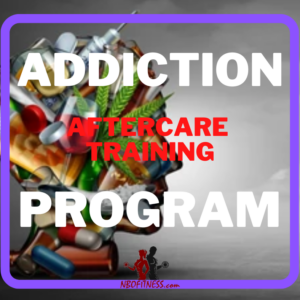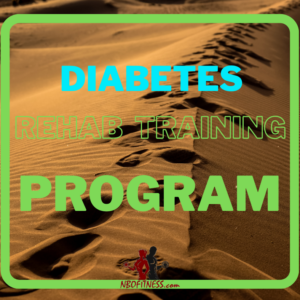
Studies have shown that maternal obesity and metabolic disturbances during pregnancy may disrupt fetal brain development and contribute to neurobehavioral abnormalities, including ADD and ADHD. Additionally, poor maternal nutrition, marked by high consumption of processed foods, sugar, and unhealthy fats, may negatively impact fetal brain growth and cognitive function. Furthermore, insufficient physical activity during pregnancy may further exacerbate these risks, as exercise plays a crucial role in promoting healthy fetal development and neuroplasticity. Sedentary behavior during pregnancy may compromise maternal metabolic health and increase the risk of neurodevelopmental disorders in offspring.
Reviewed by Evans Mwaniki, PT
Introduction
Attention Deficit Disorder (ADD) and Attention Deficit Hyperactivity Disorder (ADHD) are neurodevelopmental conditions that affect millions of individuals worldwide. These disorders can significantly impact daily functioning, academic performance, and social interactions. In this article, we’ll delve into the characteristics of ADD and ADHD, their symptoms, treatment options, and the potential influence of gestational obesity, poor nutrition, and lack of exercise during pregnancy. Additionally, we’ll explore how Nairobi Fitness Consulting can offer comprehensive support to prevent and manage ADD and ADHD.
What are ADD and ADHD?
ADD and ADHD are neurodevelopmental disorders characterized by difficulties in attention regulation, impulse control, and hyperactivity. While ADD primarily involves inattention and disorganization, ADHD encompasses both attention deficits and hyperactive-impulsive behaviors.
Influence of Gestational Obesity, Poor Nutrition, and Lack of Exercise during Pregnancy
Emerging evidence suggests a link between maternal health during pregnancy and the risk of ADD and ADHD in offspring. Gestational obesity, characterized by excessive weight gain during pregnancy, poor dietary habits, and lack of physical activity, may increase the likelihood of neurodevelopmental disorders in children.
Studies have shown that maternal obesity and metabolic disturbances during pregnancy may disrupt fetal brain development and contribute to neurobehavioral abnormalities, including ADD and ADHD. Additionally, poor maternal nutrition, marked by high consumption of processed foods, sugar, and unhealthy fats, may negatively impact fetal brain growth and cognitive function.
Furthermore, insufficient physical activity during pregnancy may further exacerbate these risks, as exercise plays a crucial role in promoting healthy fetal development and neuroplasticity. Sedentary behavior during pregnancy may compromise maternal metabolic health and increase the risk of neurodevelopmental disorders in offspring.
Signs and Symptoms
The signs and symptoms of ADD and ADHD can manifest in various ways, including:
- Inattention: Difficulty sustaining focus, being easily distracted, forgetfulness, and trouble following instructions.
- Hyperactivity: Restlessness, excessive fidgeting, inability to stay seated, and constant movement.
- Impulsivity: Acting without considering consequences, interrupting conversations, and difficulty waiting for turns.
Causes of ADD and ADHD
The exact causes of ADD and ADHD remain unclear, but a combination of genetic, environmental, and neurological factors likely contribute to their development. Research suggests that prenatal influences, such as maternal health and lifestyle choices during pregnancy, may play a role in the onset of these disorders.
Treatment and Supportive Strategies
While there is no cure for ADD and ADHD, various treatment options and supportive strategies can help manage symptoms and improve overall well-being. These may include:
- Medication: Stimulant medications, such as methylphenidate and amphetamine derivatives, are commonly prescribed to alleviate symptoms of ADD and ADHD.
- Behavioral Therapy: Counseling, cognitive-behavioral techniques, and social skills training can help individuals develop coping strategies and improve self-regulation.
- Educational Support: Academic accommodations, individualized learning plans, and classroom modifications can assist individuals with ADD and ADHD in academic settings.
- Lifestyle Modifications: Adopting healthy lifestyle habits, including nutritious diet choices, regular medically monitored physical activity, sufficient sleep, and stress management techniques, can complement traditional treatments and promote optimal mental health.
How Nairobi Fitness Consulting Can Help
At Nairobi Fitness Consulting, we understand the complex interplay between maternal health during pregnancy and the risk of neurodevelopmental disorders in offspring. Our multidisciplinary team of physiotherapists, nutritionists, and psychologists is committed to providing comprehensive support to prevent during pregnancy and manage ADD and ADHD.
Through personalized medical exercise programs, nutritional counseling, and behavioral psychotherapy, we empower expectant mothers to optimize their health and well-being during pregnancy. By addressing the underlying factors contributing to neurodevelopmental disorders, including gestational obesity, poor nutrition, and lack of exercise, we strive to promote healthy fetal development and mitigate the risk of ADD and ADHD in offspring.
Conclusion
ADD and ADHD are complex neurodevelopmental disorders with multifactorial origins. By recognizing the influence of maternal health during pregnancy, including gestational obesity, poor nutrition, and lack of exercise, we can take proactive steps to mitigate the risk of these disorders in offspring.
At Nairobi Fitness Consulting, we are committed to supporting expectant mothers on their journey to maternal health and well-being. Through collaborative care and evidence-based interventions, we empower mothers to make healthy lifestyle choices that promote optimal fetal development and reduce the risk of neurodevelopmental disorders in children. Together, we can build a healthier future for generations to come.
Our concierge (at home) team of medical personnel, physiotherapists, nutritionists and psychologists, allow you to participate in personalized therapeutic exercises, nutrition and psychological counseling sessions from the comfort of your own home at the time of your choosing, making it convenient for you and your family. Feel free to email us at [email protected] or call us via +254-725-251930 to book an appointment with us at Nairobi Fitness Consulting for your curated and guided prescription and start living your best life.










